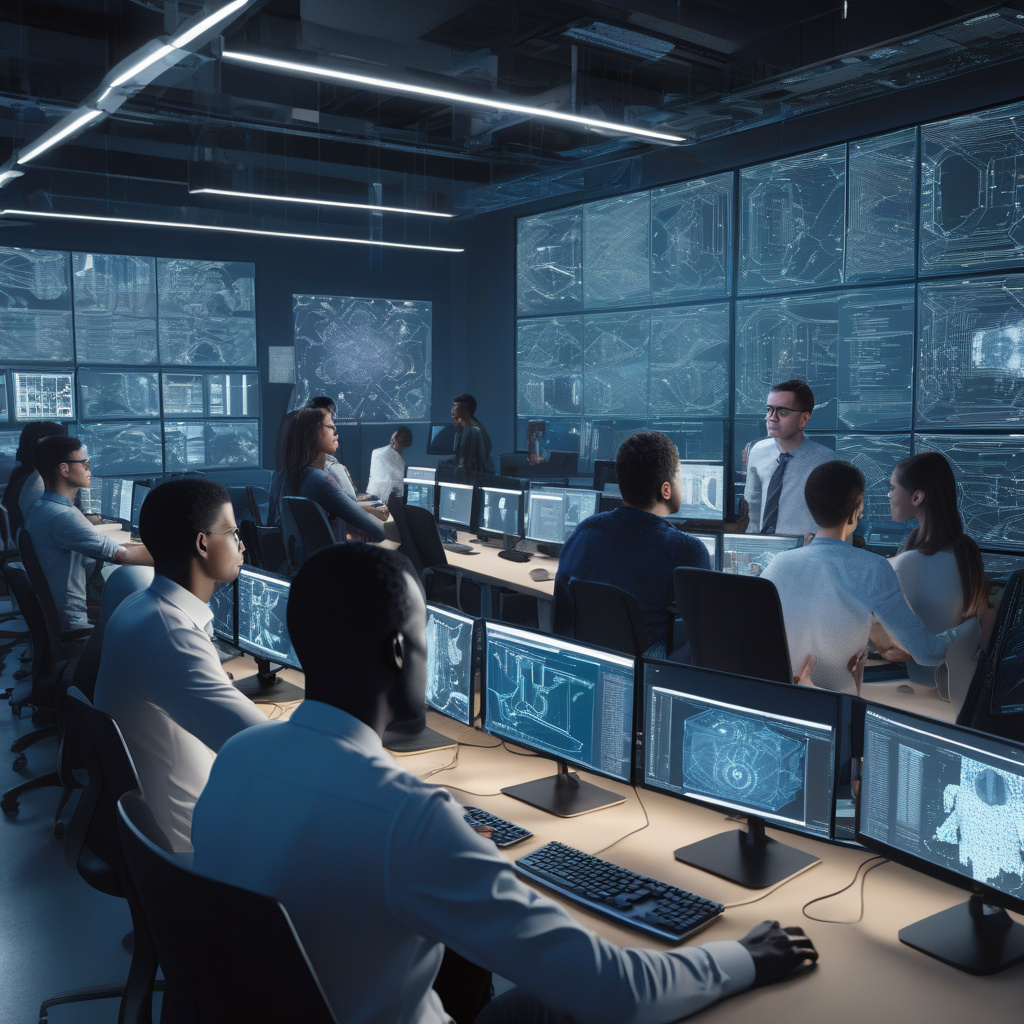In a groundbreaking revelation that has sent shockwaves through the tech industry, Microsoft CEO Satya Nadella disclosed that artificial intelligence (AI) is now responsible for writing 30% of the company’s code. This bold move by Microsoft underscores the increasing reliance on AI in software development, raising crucial questions about the implications of this technology-driven shift.
The integration of AI in code writing marks a significant milestone in the evolution of software development. By harnessing AI capabilities to automate coding tasks, Microsoft has streamlined its development processes, significantly boosting efficiency and productivity. This adoption of AI in coding not only accelerates the pace of development but also enhances code quality by minimizing human errors and inconsistencies.
However, the emergence of AI as a code writer also sparks a heated debate within the tech community. Critics argue that entrusting AI with code creation raises concerns about transparency, accountability, and the potential erosion of human creativity in software development. While AI excels at repetitive tasks and pattern recognition, its lack of contextual understanding and creative problem-solving abilities may limit its capacity to produce innovative and user-centric code.
Moreover, the reliance on AI for code writing poses complex ethical dilemmas. The black-box nature of AI algorithms raises questions about bias, fairness, and the unintended consequences of automated decision-making in code generation. As AI continues to shape the software development landscape, it is imperative to establish robust ethical frameworks, governance mechanisms, and oversight protocols to ensure responsible and ethical AI-driven code creation.
Despite the ethical and practical challenges, the integration of AI in code writing offers immense potential for the future of software development. By leveraging AI to handle routine coding tasks, developers can focus on higher-level strategic planning, problem-solving, and innovation. This symbiotic relationship between humans and AI not only augments developer capabilities but also fosters a culture of continuous learning and upskilling in the tech industry.
As Microsoft blazes a trail with its AI-driven code writing initiatives, other tech companies are likely to follow suit, embracing AI as a strategic enabler of software development. The key lies in striking a delicate balance between AI automation and human ingenuity, leveraging the strengths of both to drive innovation, efficiency, and ethical code practices. By championing a human-centered approach to AI integration, companies can harness the full potential of this transformative technology while upholding ethical standards and fostering creativity in software development.
In conclusion, Microsoft’s revelation that AI writes 30% of its code heralds a new era of AI-powered software development. While the integration of AI in code writing offers unprecedented benefits in terms of efficiency and productivity, it also raises complex ethical considerations and underscores the importance of human oversight and creativity in software development. By navigating these challenges thoughtfully and responsibly, tech companies can harness the transformative power of AI to drive innovation, advance ethical practices, and shape the future of software development.

